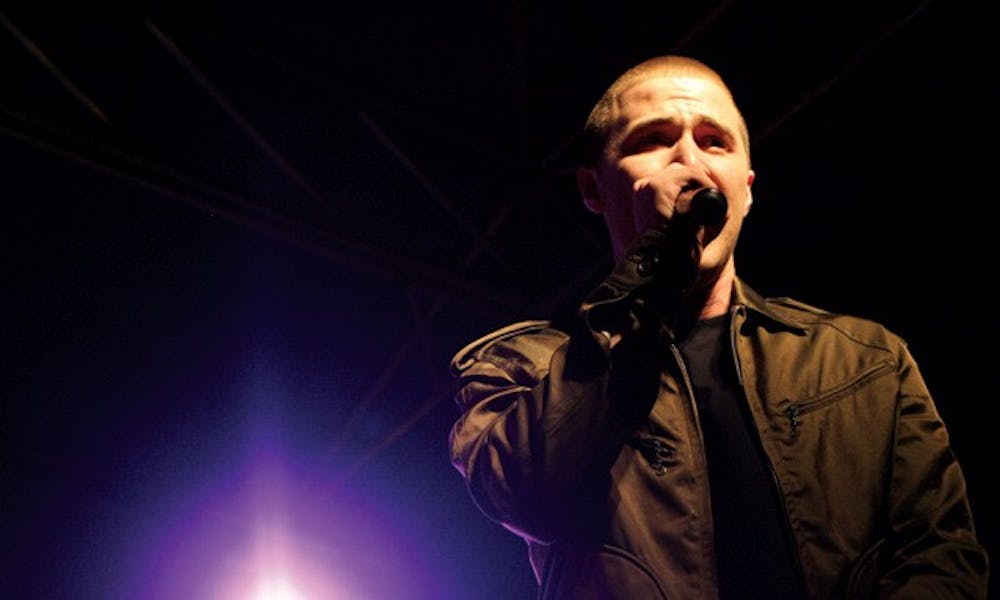Duke was one of three institutions awarded the Presidential Award for Service to Youth from Disadvantaged Circumstances from the Corporation for National and Community Service in early February 2009—a mark of the rising prominence of the University’s civic engagement programs.
Kristin Wright, service learning program coordinator, said the administration has prioritized service learning much more in the past few years.
“Everyone is working together and excited about ways the University is helping us to work together even more,” she said. Wright added that faculty director of the Service-Learning Program David Malone, who has been involved in many committees focused on civic engagement, “has expressed that this is one of the first times he feels like [Provost Peter Lange] is really behind this.”
Duke has an abundance of opportunities to get involved, said senior Becky Agostino, president of the Duke Partnership for Service, adding that this also poses a major challenge to the organization of those opportunities.
“I think one of the major issues with social action on campus is there are so many people working on it, students are confused as to who is running what,” she said. “I think there is a perception that [civic engagement at Duke is] a bit fragmented and that people don’t really know where to go for what.”
DPS, a student-run umbrella organization for student service learning groups, was created in March 2009 to improve visibility of and coordination among student service groups.
Senior Nick Bruns, former vice president of Purple, said the proliferation of service groups on campus helps to alleviate the idea that students have to commit all or nothing to a cause.
“At least there is something for everyone,” he said. “There are different layers people could be engaged with the causes, at the very least just [being] mindful of the cause.”
A highly publicized Social Activism Week, capped by a concert by pop musician Mike Posner, Trinity ’10, put Purple—which uses music and fashion to inspire students—on the map.
Bruns said that although some students think of Purple, one of 80 organizations that fall under the purview of DPS, as just an event planner, that isn’t the case.
“The point is not to have a concert and the tickets are a fundraiser,” he said. “I think it’s more the music itself tries to create its own experience; the concert tries to direct people to the cause.”
Agostino, a Robertson Scholar, said one thing she noticed about her semester at the University of North Carolina at Chapel Hill was the strong culture of service there.
“At Duke… it’s common that people think social action is something that can be confined to a class or a summer,” Agostino said. “But I really think that a lot more students are finding ways to integrate it into their lives, and have more holistic experiences [at Duke].”
The landscape of service learning at Duke has markedly shifted in the past few years, with the advent of powerhouse bragging point DukeEngage, as well as the emergence of new groups with widespread student support.
When the Community Service Center was disbanded in early 2009, its responsibilities were distributed among the Office of Student Activities and Facilities and the Duke Center for Civic Engagement, an office designed in 2007 to connect University service learning programs with the newly minted DukeEngage program.
The Klein-Wells Commitee’s “Engaging Excellence” report, which was released Jan. 15, encouraged finding ways to bring more coordination and focus to Duke’s civic engagement programs.
As a result, administrators named Leela Prasad as faculty director for DCCE. Prasad, associate professor of ethics and Indian religions, will work to establish a formal director for the center along with Eric Mlyn, director of DukeEngage and DCCE.
Wright said efforts are now being made to connect DukeEngage to academic work, with several ideas under consideration.
The Service-Learning Program, which focuses on connecting civic engagement to the academic curriculum, has received a lot more interest from students and faculty recently, Wright said. She added that 16 new courses were given the service learning label for Spring and Fall 2010, up from 11 new courses in 2009.
“Duke is definitely recognized as a great place to be right now in terms of service learning and we’re very proud of that,” Wright said.
Get The Chronicle straight to your inbox
Sign up for our weekly newsletter. Cancel at any time.

